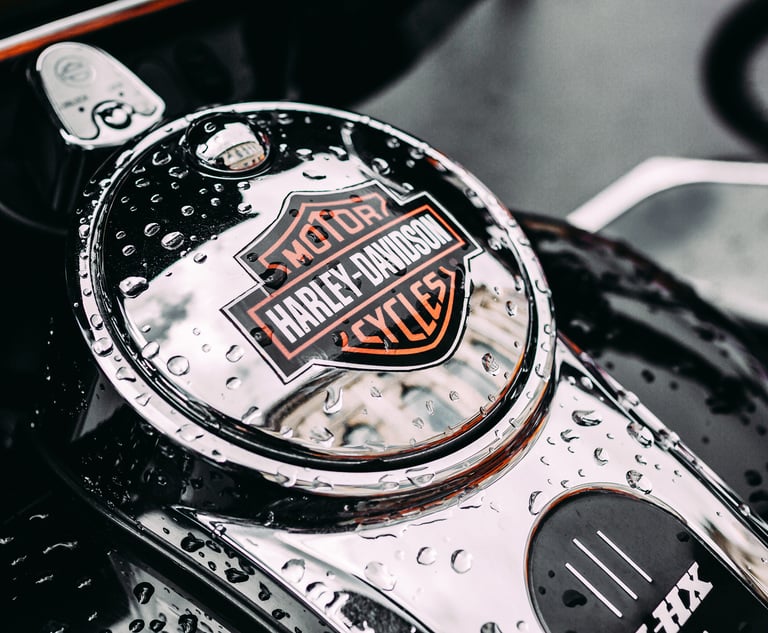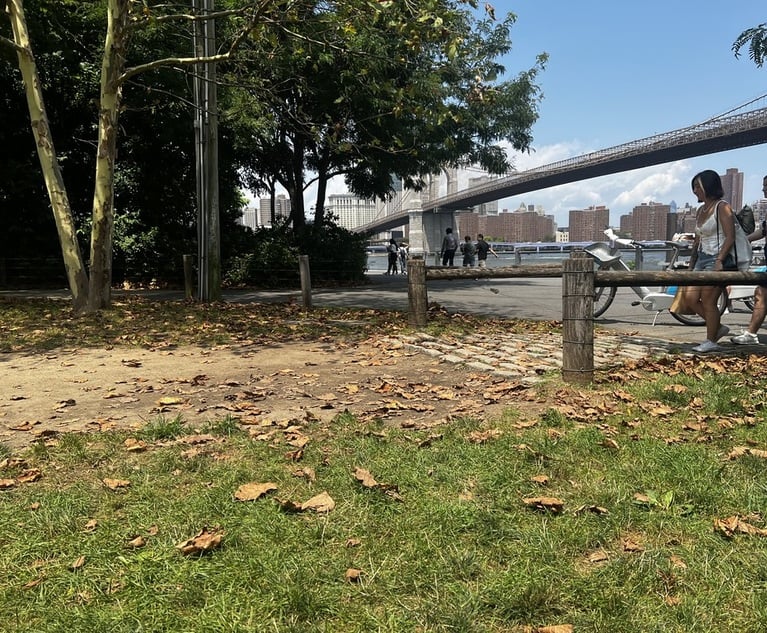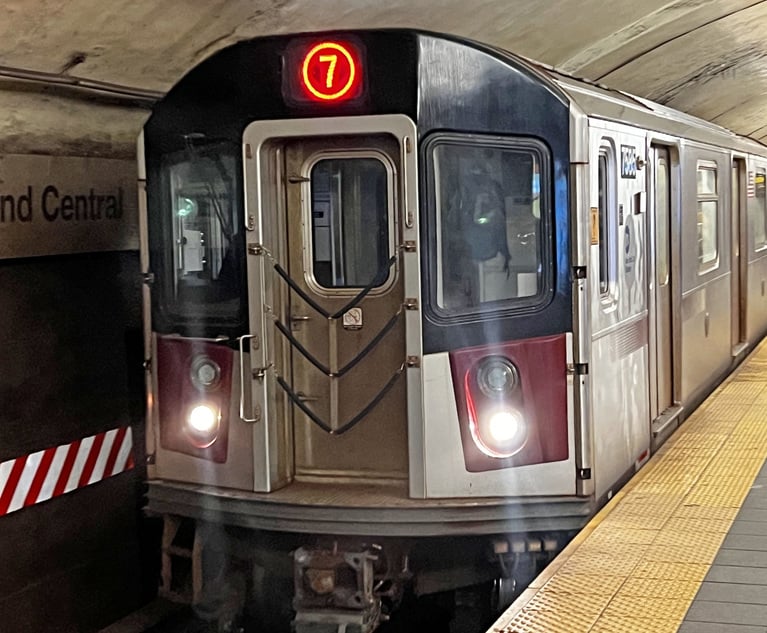 Corinne Ball
Corinne BallRelease and Waiver by an LLC Debtor of Its Affiliated Lenders Bars Subsequent Suit
Corinne Ball's latest column on Distress Mergers and Acquisitions looks at the recent decision in the 'Dura Automotive' case, addressing derivative standing in the bankruptcy of a limited liability company.
June 24, 2020 at 01:00 PM
11 minute read
Judge Karen B. Owens recently issued a decision on derivative standing in the bankruptcy of a limited liability company. The decision applied a Delaware Code provision that allows only an LLC member or its assignee to bring derivative claims on behalf of the LLC to deny standing to a creditors' committee to bring derivative claims on behalf of the debtor in In re Dura Automotive Systems, LLC, No. 19-12378 (Bankr. D. Del. June 9, 2020). In this case, the Committee, neither a member or a member's assignee, could not bring claims on the debtors' behalf following the LLC debtors' waiver and release of claims.
The Committee sought standing to pursue claims against the debtors' prepetition lenders. These prepetition lenders were affiliates of the debtors' majority shareholders and prepetition CEO. In the context of the bankruptcy court's approval of the debtor-in-possession financing initially provided by these affiliated pre-petition lenders, the debtors waived claims against the lenders. The waiver was memorialized in the final DIP financing order. The DIP financing order bridged the debtors to an early sale of substantially all of their assets under section 363 of the Bankruptcy Code. Following the sale there was to be a conversion to a Chapter 7 case with a trustee appointed to pursue the only remaining assets for the benefit of unsecured creditors, i.e., the causes of action belonging to the debtors. Significantly, the determination that the Committee did not have standing to bring claims against these insider lenders also meant that the claims were not preserved for the Chapter 7 trustee to pursue following conversion.
|Background and Procedural History
Dura Automotive Systems and its affiliates form a Tier 1 automotive supplier that designs and manufactures automotive systems for automobile manufacturers. Prior to its Chapter 11 filing, Lynn Tilton was the CEO of Dura. Patriarch Partners, LLC and other entities associated with Tilton held 73% of the equity of Dura's parent company and Ark II CLO 2001-1, Ltd, a fund associated with Tilton, was Dura's prepetition ABL lender.
The lenders under Dura's prepetition term loan were other Tilton-affiliated funds, Zohar II 2005-1, Limited and Zohar III, Limited. The Zohar Funds were formerly managed by Tilton, but, after disputes with insurers, the SEC, investors and others, an independent firm assumed the management role. In 2018, the Zohar Funds filed Chapter 11 petitions in the District of Delaware. In the course of those proceedings, the Zohar Funds sought to monetize their interests in Dura, including by claiming that the Zohar Funds were the beneficial owners of Dura's equity, as some of this equity was registered in the names of certain of the Zohar Funds. This ownership dispute resulted in extensive litigation.
The ongoing disputes with the Zohar Funds and the Zohar Funds' bankruptcy prevented Dura from accessing the credit markets and caused certain suppliers and customers to stop entering into new contracts with Dura. As a result, on Oct. 17, 2019, Dura and certain affiliates filed voluntary Chapter 11 petitions in the Middle District of Tennessee. On the first day of the proceedings, Dura requested approval of a $77 million DIP financing facility provided by Ark II. The DIP facility milestones included the pursuit of a 363 sale of substantially all of Dura's assets. An entity affiliated with Tilton proposed a stalking horse bid that Dura initially intended to pursue. The DIP motion was granted on an interim basis.
Immediately after Dura filed its voluntary petitions, the Zohar Funds filed emergency motions in their own Chapter 11 proceedings seeking orders transferring the Dura proceedings to the District of Delaware and barring the judge in the Middle District of Tennessee Bankruptcy Court from entering any orders in the Dura proceedings other than those necessary to preserve the value of the estate. Judge Owens granted the latter motion on the same day and set a schedule for hearing the transfer of venue motion.
In addition to the interim Ark II DIP financing, Dura entered into negotiations with Bardin Hill Investment Partners for alternative DIP facility. The Bardin Hill proposal had the support of the Zohar Funds. It paved the way for Bardin Hill, rather than Tilton, to be the stalking horse bidder. Once this second interim DIP financing motion was approved, Dura agreed to have the case transferred to the District of Delaware.
The final DIP order approving the Bardin Hill facility included provisions that Dura stipulate to the validity of certain liens and security interests of entities associated with Tilton and waived claims against the prepetition lenders. At the same time, Judge Owens approved bidding procedures for a sale of substantially all of Dura's assets. In response to concerns about conflicts of interest, the bidding procedures order also provided that Tilton and her affiliated entities would have only limited involvement in the management of Dura going forward.
Dura commenced a postpetition marketing process for substantially all of its assets that ultimately led to only two "last-resort" credit bids by the DIP lenders, one for Dura's European business and another for its North American business. The two bids, as proposed, would have left no assets with the estate to pay creditors, and Dura planned to seek dismissal of its cases after the sales were completed. However, after negotiations with the Committee and the U.S. Trustee, the parties agreed, and the sale orders provided, that the estate would retain certain causes of action, including those against Tilton and her affiliated entities. The cases would then be converted to Chapter 7 liquidations so that the Chapter 7 trustee would pursue any causes of action for the benefit of the estate. The agreement carved out actions relating to the prepetition ABL from the Chapter 7 trustee's powers, but provided that the Committee could continue its standing motion.
|The Standing Dispute
During the course of the case, the Committee conducted an investigation and determined that Dura had colorable claims against Tilton and her affiliated entities, potential challenges to the extent and validity of the prepetition ABL liens and potential recoveries for alleged preferential transfers. The final DIP order provided that Dura waived challenges to the validity and extent of the prepetition liens and waived claims against the prepetition lenders. Accordingly, the Committee originally sought standing to bring all of these claims on Dura's behalf. Because the sale orders provided that the Chapter 7 trustee would be empowered to bring most of the claims upon conversion of the cases, the Committee filed a renewed standing motion limited to the claims not expressly preserved for the Chapter 7 trustee in the sale orders, i.e., claims against the prepetition ABL lenders in their capacities as such. If the Committee succeeded on the standing motion, such claims would then also be preserved for the Chapter 7 trustee.
The Committee argued that it should be granted standing based on satisfying a three-factor test. First, the Committee argued that there were colorable claims against the prepetition ABL lenders, including an alleged preferential transfer when the prepetition ABL lenders filed a financing statement to rectify an inadvertently filed termination statement and claims for equitable subordination of the prepetition ABL claims based on the multiple roles the prepetition ABL lenders took prior to and at the outset of the Chapter 11 cases. In support of the second factor, whether the party seeking standing made a demand that the company pursue the claims and the company unjustifiably declined to do so, the Committee argued that making a demand to Dura to bring these challenges would be futile given Dura's waiver in the DIP order. The third factor, that the Committee sought leave from the court to bring the claims, was not contested.
In response, Dura argued that section 1002 of the Delaware Limited Liability Company Act, 6 Del. C. §18-1002, which provides that only members of a Delaware LLC or their assignees may bring derivative actions on behalf of the LLC, barred the Committee from having standing to bring claims on behalf of Dura. It supported this position by citing the opinion of the Delaware Supreme Court in CML V, LLC v. Bax, 28 A.3d 1037, 1041 (Del. 2011), as corrected (Sept. 6, 2011), as well as three Delaware bankruptcy decisions following Bax.
In Bax, the Delaware Supreme Court held that section 1002 of the Delaware Limited Liability Company Act conclusively barred creditors from bringing derivative actions on behalf of an LLC. According to the court, the "[t]he statutory language is clear, unequivocal, and exclusive, and operates to deny derivative standing to creditors who are not members or assignees of membership interests." The LLC at issue in the Bax case was insolvent at the time the creditors sought to bring derivative actions and the court found that insolvency does not create an exception to this rule. Further, the court rejected an argument by the creditors that, because Delaware law permits creditors of insolvent corporations to bring derivative actions, the creditors of insolvent LLCs should be permitted to do the same.
Judge Owens agreed with Dura that Delaware law, as set out in Bax, was controlling and prevented the Committee from bringing derivative claims on behalf of Dura. In arriving at this decision, the central issue before the court then was whether the Bankruptcy Code preempts this Delaware statute to provide the Committee expanded powers in order to further the Committee's unique and important role in bankruptcy cases. Judge Owens found that it does not and ruled that state law determines who may act on behalf of an entity, whether in or out of bankruptcy. The court also held that this remains true whether the claims arise under state law, the Bankruptcy Code or other law. Accordingly, the court denied the derivative standing motion.
|Conclusion
The Dura case features contentious history with insider activities, independent directors, and an activist Committee, as well as a waiver of claims by an LLC debtor in favor of an insider lender. It should be noted that other causes of action were not waived and survived for the benefit of creditors. But with respect to the causes of action asserted against the insider lender, the court focused on who could bring such claims in the case of an LLC debtor, relying upon state law and rejecting pre-emption arguments, even for claims arising under the Bankruptcy Code. Indeed, the decision did not really address whether the claims survived the waiver by the LLC debtor, which seems a necessary consequence of the state law standing limitation. Instead, the court suggests that sophisticated parties should avoid this situation at the time of any proposed waiver or release by an LLC debtor.
The role of the independent directors and the process followed by the debtor in granting such release or waiver was not considered. This decision underscores the importance of negotiated waivers and stipulations contained in court orders when the debtor is a Delaware LLC—or a Delaware limited partnership, for which there is a nearly identical statutory provision. 6 Del. C. §17-1002. At times, the decision to grant releases or waivers can be postponed until later in a case when such claims might be assigned. In contrast, when it comes to releases and waivers, DIP lenders frequently, if not inevitably, seek such releases and waivers in the early days of a case.
The role of waivers, releases and acknowledgments that liens and security interests are duly perfected and enforceable, while limited for corporate debtors, can be conclusive for LLC and LP debtors (and their creditors) without regard to the process (or lack of it) leading to the LLC or LP debtor's decision to grant such waiver, release or acknowledgement. In light of this decision, creditors' committees and the U.S. Trustee should be particularly cautious when an LLC debtor declines to pursue causes of action, even for understandable reasons reflecting a conflict of interest. A decision by an LLC or LP debtor to decline pursuing causes of action, depending on how it is implemented, can have outcome determinative consequences. While the LLC or LP debtor may decline to pursue such actions, the court was clear that others must find a way to preserve such causes of action so that, if appropriate, such claims can be pursued at a later date,
The stage is set for time sensitive matters occurring early in a case involving a LLC or LP debtor, whether motions to approve DIP financing, use of cash collateral or sales with credit bids, to determine the outcome for unsecured creditors and assure certainty (and repose) for the lenders or buyers involved.
Corinne Ball is a partner at Jones Day.
|This content has been archived. It is available through our partners, LexisNexis® and Bloomberg Law.
To view this content, please continue to their sites.
Not a Lexis Subscriber?
Subscribe Now
Not a Bloomberg Law Subscriber?
Subscribe Now
NOT FOR REPRINT
© 2024 ALM Global, LLC, All Rights Reserved. Request academic re-use from www.copyright.com. All other uses, submit a request to [email protected]. For more information visit Asset & Logo Licensing.
You Might Like
View All
Decision of the Day: Judge Reduces $287M Jury Verdict Against Harley-Davidson in Wrongful Death Suit

Decision of the Day: Judge Denies Summary Judgment Motions in Suit by Runner Injured in Brooklyn Bridge Park

Decision of the Day: Administrative Court Finds Prevailing Wage Law Applies to Workers Who Cleaned NYC Subways During Pandemic

Law Firms Mentioned
Trending Stories
Who Got The Work
Michael G. Bongiorno, Andrew Scott Dulberg and Elizabeth E. Driscoll from Wilmer Cutler Pickering Hale and Dorr have stepped in to represent Symbotic Inc., an A.I.-enabled technology platform that focuses on increasing supply chain efficiency, and other defendants in a pending shareholder derivative lawsuit. The case, filed Oct. 2 in Massachusetts District Court by the Brown Law Firm on behalf of Stephen Austen, accuses certain officers and directors of misleading investors in regard to Symbotic's potential for margin growth by failing to disclose that the company was not equipped to timely deploy its systems or manage expenses through project delays. The case, assigned to U.S. District Judge Nathaniel M. Gorton, is 1:24-cv-12522, Austen v. Cohen et al.
Who Got The Work
Edmund Polubinski and Marie Killmond of Davis Polk & Wardwell have entered appearances for data platform software development company MongoDB and other defendants in a pending shareholder derivative lawsuit. The action, filed Oct. 7 in New York Southern District Court by the Brown Law Firm, accuses the company's directors and/or officers of falsely expressing confidence in the company’s restructuring of its sales incentive plan and downplaying the severity of decreases in its upfront commitments. The case is 1:24-cv-07594, Roy v. Ittycheria et al.
Who Got The Work
Amy O. Bruchs and Kurt F. Ellison of Michael Best & Friedrich have entered appearances for Epic Systems Corp. in a pending employment discrimination lawsuit. The suit was filed Sept. 7 in Wisconsin Western District Court by Levine Eisberner LLC and Siri & Glimstad on behalf of a project manager who claims that he was wrongfully terminated after applying for a religious exemption to the defendant's COVID-19 vaccine mandate. The case, assigned to U.S. Magistrate Judge Anita Marie Boor, is 3:24-cv-00630, Secker, Nathan v. Epic Systems Corporation.
Who Got The Work
David X. Sullivan, Thomas J. Finn and Gregory A. Hall from McCarter & English have entered appearances for Sunrun Installation Services in a pending civil rights lawsuit. The complaint was filed Sept. 4 in Connecticut District Court by attorney Robert M. Berke on behalf of former employee George Edward Steins, who was arrested and charged with employing an unregistered home improvement salesperson. The complaint alleges that had Sunrun informed the Connecticut Department of Consumer Protection that the plaintiff's employment had ended in 2017 and that he no longer held Sunrun's home improvement contractor license, he would not have been hit with charges, which were dismissed in May 2024. The case, assigned to U.S. District Judge Jeffrey A. Meyer, is 3:24-cv-01423, Steins v. Sunrun, Inc. et al.
Who Got The Work
Greenberg Traurig shareholder Joshua L. Raskin has entered an appearance for boohoo.com UK Ltd. in a pending patent infringement lawsuit. The suit, filed Sept. 3 in Texas Eastern District Court by Rozier Hardt McDonough on behalf of Alto Dynamics, asserts five patents related to an online shopping platform. The case, assigned to U.S. District Judge Rodney Gilstrap, is 2:24-cv-00719, Alto Dynamics, LLC v. boohoo.com UK Limited.
Featured Firms
Law Offices of Gary Martin Hays & Associates, P.C.
(470) 294-1674
Law Offices of Mark E. Salomone
(857) 444-6468
Smith & Hassler
(713) 739-1250






